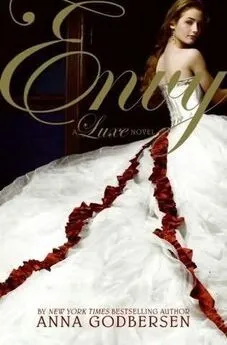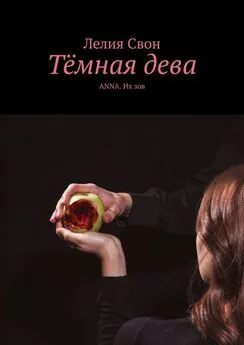Anna Godbersen - Envy
- Название:Envy
- Автор:
- Жанр:
- Издательство:HarperCollins
- Год:2009
- ISBN:нет данных
- Рейтинг:
- Избранное:Добавить в избранное
-
Отзывы:
-
Ваша оценка:
Anna Godbersen - Envy краткое содержание
Jealous whispers.
Old rivalries.
New betrayals.
Two months after Elizabeth Holland's dramatic homecoming, Manhattan eagerly awaits her return to the pinnacle of society. When Elizabeth refuses to rejoin her sister Diana's side, however, those watching New York's favorite family begin to suspect that all is not as it seems behind the stately doors of No. 17 Gramercy Park South.
Farther uptown, Henry and Penelope Schoonmaker are the city's most celebrated couple. But despite the glittering diamond ring on Penelope's finger, the newlyweds share little more than scorn for each other. And while the newspapers call Penelope's social-climbing best friend, Carolina Broad, an heiress, her fortune — and her fame — are anything but secure, especially now that one of society's darlings is slipping tales to the eager press.
In this next thrilling installment of Anna Godbersen's bestselling Luxe series, Manhattan's most envied residents appear to have everything they desire: Wealth. Beauty. Happiness. But sometimes the most practiced smiles hide the most scandalous secrets. .
Envy - читать онлайн бесплатно полную версию (весь текст целиком)
Интервал:
Закладка:
“Tell Aunt Edith that I will be back for dinner, unless I am invited elsewhere,” she said as she came down the final step. She wasn’t sure quite what she meant by that statement, but she blinked as though it were perfectly obvious and moved forward toward the door. She wavered for a moment in front of the glass, wanting to give Claire a reassuring look, or perhaps to receive one. But then she remembered how dire her situation was — every time it occurred to her it was like a bath in ice — and she fortified herself. She had once had a deft hand for perfectly manipulating any social situation; she might yet have it again. But she could not vacillate or pause for niceties or succumb to the nervous energy within.
The city was very still at that hour, and if she had not known better she would have thought there was nothing doing. But she did know better. She knew that the end of tea was coming soon, and the ladies of New York were employing all their daintiest gestures while thinking of what sort of antics they would get up to at dinner. They were thinking of slights and how to make them and engagements and how to enter into them. She was on a mission herself, one for which she would be well advised to keep a cool head and her wits in regimental order — and yet, she was surprised to find a warm and pleasant anticipation fanning through her chest as they rode up Madison Avenue into the thirties.
She told the hansom not to wait and presented her card at the door.
“Is Mr. Cutting in?” she asked, and though she had planned to smile, the one that came was so natural, glistening on her face like a sunset on waves, that she was embarrassed by it. “Mr. Teddy Cutting.”
She could not see the Cuttings’ butler’s expression through his beard, but his initial silence made her wonder if she hadn’t been too forward or if her delight in saying the name aloud had not been too obvious. She knew that, for herself and according to her own standards, it had been inappropriate. “I will see, mademoiselle,” he said eventually, and then he led her to the drawing room.
A fire was going under the restrained marble mantel there, and the ferns overgrew their pedestals. The walls were covered in striped purple wallpaper and all the surfaces were populated by cut crystal, and on the ivory Turkish love seats sat Mrs. Cutting and two of her daughters, Alice and Julia. They were looking unusually dour — that was the first thing Elizabeth noticed. The second was that there were fewer people than she might have anticipated in a drawing room of this stature and at that hour.
“Miss Elizabeth Holland,” the butler said, and when the three women looked up she realized that they had all been crying. Elizabeth’s small mouth began to work, but she could not get hold of any appropriate words. The butler withdrew and she stepped forward into the warmth of the room.
“Oh, Elizabeth,” Alice wailed. She hurried across the room and threw her arms around her brother’s old friend’s neck. Like her mother and sister, she wore black, with a little American flag ribbon pinned to the chest. “If you only knew! If you only knew…”
“Whatever’s happened?” Elizabeth felt the tight clump of hope within her begin to dissolve. Something much darker was coming. For a moment she wondered if she wasn’t some kind of curse, and if a violence hadn’t been visited on Teddy just like the one that had taken Will. “Why so sad today?”
Alice drew her into the sitting area, and Julia poured her a cup of tea. She passed it to Elizabeth, who managed only to hold it politely. As she waited for the bad news, which she could already feel nipping at her toes, she sensed that even tepid liquid might scald her.
“It’s Teddy, of course.” Alice sat down beside their guest and rested her hands on the other girl’s knees. Her gray eyes were just the same shade as her brother’s, and she had the same broad and slightly horselike features. “He’s gone.”
Elizabeth’s eyelids squeezed shut, but only for just a second. “Gone where?” she asked, when they opened again. Her teacup had begun to clatter in her saucer, and she brought her other hand up to stop the shaking.
“Gone to war.” Julia, who was sitting beside their mother on the opposite love seat, looked at Elizabeth as though it might somehow be her fault. For all she knew, it was. “He said that he met some soldiers on the train who showed him what it meant to be a real American, and that even Elizabeth Holland had endured more hardship and fought back more bravely in her life than he ever had from anything….”
Elizabeth put down the tea and her hand moved involuntarily to her waist. She looked backward to the memory of her time with Teddy in Florida as though at a best friend standing onboard a ship moving inexorably out to sea. What had she said to him that made him want to go so far away? She couldn’t place it, and only wished that she’d let him know how very heroic he might have been to her, right there in New York. She would have traded a great deal just to have stayed a little longer on the dance floor with him the night he had tried to propose.
“So soon?” she said eventually, as though it were only the timing of this news that shocked her, and not the revelation of absence itself.
“Yes.” Mrs. Cutting’s voice broke over the word, and she brought a handkerchief to her face. Her fair hair was going gray and her whole soft body shook a little with the sorrow of it all. She had ever been a lady whose singular joy in life was the presence and success of her children; her only miseries, their pain. “He enlisted and already they’ve shipped him out to San Francisco! From there he goes to the Philippines.”
Elizabeth wondered at what point in that journey her old friend was at now, for after all, it was one she herself had made. But then, that did not make him any more reachable.
“You must be terribly proud of him,” she said sincerely.
The three Cutting ladies nodded wretchedly, and then went on to discuss all their greatest fears and nightmares, all their prayers for his safety, and what drastic measures they would take upon their own lives if anything should happen to him. Elizabeth knit her brow in sympathy and crooned in agreement, but her spirit had already left that parlor. That morning she had had a plan, and that afternoon she had felt a rising optimism, but by the end of tea she saw these things anew, for all their foolishness and futility.
Thirty Eight
The happy, rich Henry Schoonmakers are back from Florida and apparently cannot spend a moment apart. They will be attending a small, intimate dinner at the home of the bride’s family, the Hayeses, this evening, along with a few select guests. One can only conclude that for their happiness they depend very little on those outside their circle.
— FROM THE SOCIETY PAGE OF THE NEW-YORK NEWS OF THE WORLD GAZETTE, THURSDAY, MARCH 1, 1900
WHEN, UPON HER RETURN FROM THE SOUTHERN sojourn, Penelope had insisted that her mother throw a dinner for her family-in-law, she could not possibly have imagined that so little would have been accomplished in the intervening days, or that she would have been so incapable of improving upon her situation even to the slightest degree. While it was true that there had been very little in her favor on the return trip, still she would not have believed that so much time and so much of her own effort and beauty would not have turned things around.
Even now, sitting in front of the large, beveled mirrors in the ladies’ lounge, where on the evenings of grand balls scores of women crowded around, trying to look even half as beautiful as the hosts’ young daughter, she found it incomprehensible. For those were her slim shoulders and her unblemished forehead and her almost phosphorescent complexion. That was her exquisitely fitting pale pink chiffon dress, which was layered and tucked so that her décolletage might reflect the candlelight and her waist could just barely exist.
“Henry will stop being such a cad and pay more attention to you soon,” said Isabelle, who was sitting next to her in a dress of ivory overlaid with beige lace, as though she had been reading Penelope’s thoughts. Though her words seemed intended to reassure, her tone did nothing to enforce that sentiment.
“I’m not worried,” Penelope replied, sitting back against the little stool. She looked at herself in the mirror and willed her white neck to lengthen. She was a girl long adept at saying precisely the opposite of what she meant, and yet there was a little strain in the lie tonight. She wouldn’t have believed that Henry had the nerve to tell his father he wanted to leave his wife, but there had been some awful determination in the way he carried himself that afternoon in Isabelle’s drawing room. She was full of trepidation, wondering what he might do tonight, and she felt woefully devoid of any idea how she might fight back.
Grayson appeared just then in the doorframe and Isabelle stood up hopefully — a gesture that the younger matron could not help but regard with a little internal scoffing, for truly, Isabelle should have been over him by now. Though he had once paid her sweet attention, Mr. Hayes didn’t appear to so much as register her presence. It was clear that it was his sister he had come for.
Out in the hall, Penelope noticed Buck, his huge chest covered in a blinding white dress shirt. Penelope couldn’t be quite sure why, but she had lately found his presence insufferable. Perhaps it had something to do with how little he had been able to do for her during this, her time of need, or maybe it was because he knew how very much she wanted in this world and what a slight percentage of it she truly had. For too long a moment Isabelle waited for Grayson to turn around for her, and when he did not she allowed Buck to take her arm instead so that he might accompany her in to dinner.
Grayson put on a serious expression and offered his arm to his younger sister. “You look very lovely this evening,” he said as they stepped onto the black-and-white checked marble flooring of the halls. Buck and Isabelle were far enough that they wouldn’t be able to hear the Hayes siblings’ conversation, and the sound of all their custom-made heels rang out through the intervening yards. Penelope noted the seriousness of his tone, and wondered for a gleeful moment if perhaps he had already found a way to punish Diana. Then she’d have that to dangle in front of Henry, and perhaps all would not be lost.
“Thank you.”
Penelope walked at a relaxed gait, leaning against her brother’s arm. Isabelle was probably now longing to turn her head, which was heaped with blond curls, but propriety and pride made even a small gesture of that kind impossible.
“I will need to give you the money back.”
The tight grin that Penelope’s lips wore began to slacken. “The money?”
“Yes.”
“Don’t you need it anymore?”
“Yes.”
There was something new in his voice, almost like earnestness, which Penelope found both mysterious and painfully annoying. But she would have disliked what he said regardless of tone. “Well then, why, dear brother?”
They had reached the entryway to the parlor that adjoined the dining room, with its burgundy club chairs and gold vases filled with pampas grass. Inside that oak-paneled space were her family, and Henry’s, and the painter Lispenard Bradley and a few others, loitering on the camel-hair rug and fingering their drinks. The gentlemen were moving slowly to take up the ladies’ arms to escort them into the dining room. They appeared very stupid and useless to Penelope at that moment, and then she noticed something else.
Читать дальшеИнтервал:
Закладка:




![Anna Jones - По истечении срока годности – забыть [СИ]](/books/1149886/anna-jones-po-istechenii-sroka-godnosti-zabyt-s.webp)





